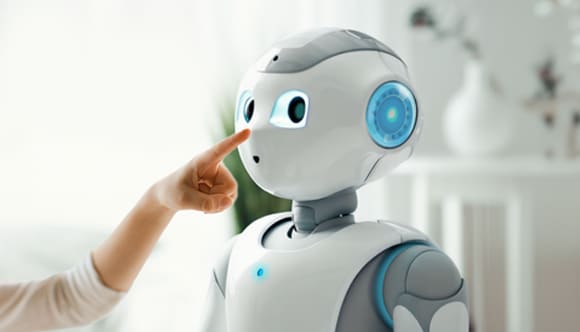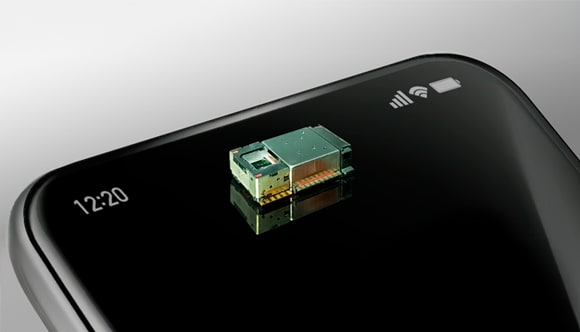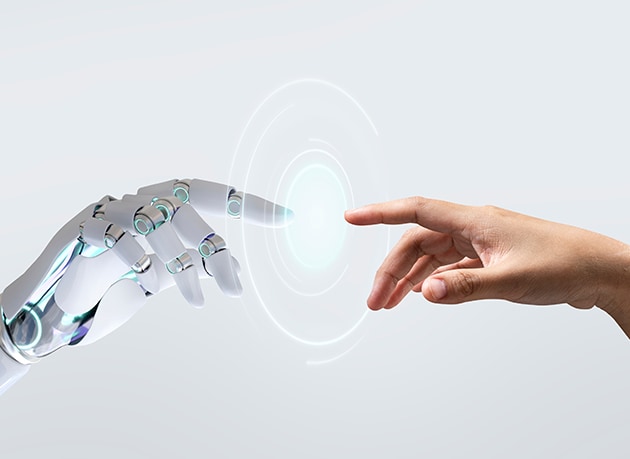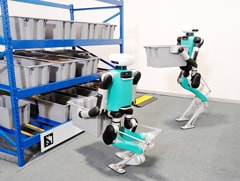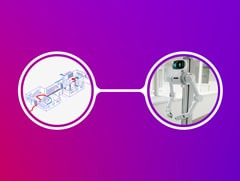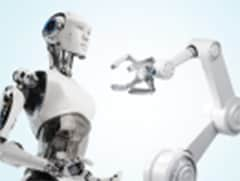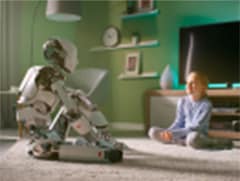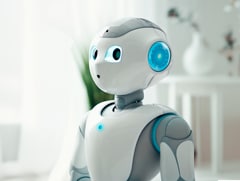Robotics
A Partner Who Is Always by Your Side
The day is nearing when robots will join us on our travels, support us in our daily lives, and become valued partners. A robot equipped with optical image stabilization (OIS) technology will be able to communicate with you smoothly by constantly acquiring steady visual information even during intense movement, engendering amazing experiences with your robot.
FAQs about Robotics
Find answers to frequently asked questions about Robotics.
Q:
What is OIS technology in robotics?
A:
OIS stands for Optical Image Stabilization. It is a technology that enables a camera to take clear photos by canceling out the blurring caused by camera movement. In robotics, OIS helps robots to constantly acquire steady visual information, even during intense movement, which can lead to smooth communication between the robot and humans.
Q:
What are the essential sensors required for high-level control of robot movement?
A:
The essential sensors required for high-level control of robot movement are cameras, microphones, temperature sensors, angle sensors, inertial sensors, and so on. By accurately grasping the surrounding conditions and their own state through these sensors, robots can engage in autonomous movement.
Q:
What is the role of robotics in society?
A:
Robotics, which combines electrical, machine, and information engineering, is a state-of-the-art technology for the design, manufacture, and control of robots. In recent years, robotics has led to the development of robots engaging not only in industrial assembly, transportation or inspection at factories but also in emerging technologies such as service robots that can perform household and nursing care work. Robotics is progressing rapidly towards creating a new society in which robots and humans coexist and improve each other’s abilities.
Q:
What are humanoid robots?
A:
Humanoid robots are robots that resemble humans in their shape and appearance. They carry AI, sensors, actuators, and are capable of communication with humans. The development of humanoid robots is progressing at lightning speed, and they will not only serve as a substitute for humans but will also help to create a new society in which robots and humans coexist and improve each other’s abilities.
Q:
What is the Camera Module Actuator (CMA) in robotics?
A:
The Camera Module Actuator (CMA) is a module that moves the lens of a camera with the movement of the camera, canceling out the blurring and stabilizing the image. CMA is a critical component in OIS technology, which helps robots to take clear photos and acquire steady visual information, even during intense movement.
Product Center
Click the links below to learn more about these products.
Featured Stories
Our Latest Solutions
-
Human-Centric Robots Will Dramatically Transform the Forefronts of Labor
-
Collaboration Between Indoor Positioning Solution VENUE® and Latest in Robotics Sparks New Possibilities
-
What Enables a Smartphone Camera to Shoot a Full Moon Clearly without Camera Shake?
-
From Industrial to Avatar Robots: TDK RoboKit1-DK Development Platform Clears the Way for a Diversity of Future Robots
-
What Role Do High-Precision Sensors Play in Creating Natural Movement in Robots?
-
Microphone Solutions for Expanding the Possibilities of Interactive Robots


